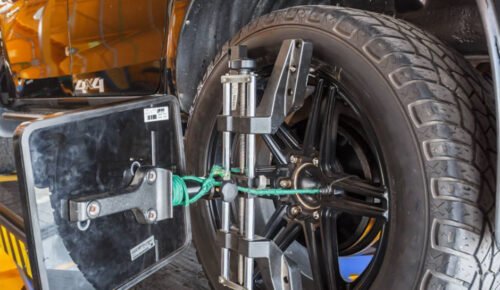Choosing a used car involves considering reliability, ownership costs, and history. Planning for efficiency, spaciousness, and premium features is crucial. Working with professionals specializing in pre-owned vehicles can provide confidence in the selection and condition of your purchase.
Balancing lifestyle, budget, and reliability is crucial when finding the perfect used car. Used cars offer substantial savings over new vehicles and ensure a long-lasting, reliable vehicle. If you’re searching for quality vehicles in Florida, start by browsing the extensive inventory for a used car Sarasota to find options that suit all budgets and preferences. Shopping at reputable dealerships gives you access to a wider selection and more reliable purchase processes.
Assess Your Needs
To find a used car, consider your daily needs, including passengers, cargo capacity, daily driving habits, climate, safety features, and daily usage. Consider factors like fuel economy, towing capabilities, and local options. Analyze your needs upfront to find a car that feels right from day one. After analyzing your needs, explore local options to find the perfect car. For a convenient overview of available makes and models, check out trusted car dealerships Sarasota to view current inventories and certified vehicles on site. These dealerships often carry various brands and certified pre-owned choices to match different styles and budgets.
Set a Realistic Budget
Before making a major purchase, create a budget that includes insurance, fuel, maintenance, and repairs. Keep total car expenses below 20% of your net monthly income. Use online tools like car loan calculators to determine your monthly budget, which will make negotiations easier and prevent overspending.
Research Reliable Models
Reliability is one of the most important factors in buying a used car. Focus your search on brands and models known for long-lasting performance and minimal repair costs. Reputable resources such as Consumer Reports share in-depth owner surveys, giving you an idea of which models routinely reach the 200,000-mile threshold. Reviewing these independent rankings decreases the likelihood of buying a vehicle that might become problematic or costly later.
Consider Certified Pre-Owned Options
Certified Pre-Owned (CPO) vehicles provide reassurance beyond the typical used car. These cars undergo extensive inspections and often receive factory-backed warranties, covering major mechanical components for added peace of mind. Although CPO vehicles may carry a slightly higher price tag, the additional coverage and thorough inspection processes can save money in the long run. Understanding the benefits and limitations of CPO programs is key to determining if this route best fits your needs.
Obtain a Vehicle History Report
Once you have a shortlist, request a detailed vehicle history report from reputable sources. These reports give insight into critical past events, including ownership records, major accidents, flood or fire damage, title issues, and outstanding recalls. Consulting a vehicle history report lets you verify mileage and helps you steer clear of cars with red flags.
Conduct a Thorough Inspection
Before purchasing a vehicle, thoroughly inspect its interior and exterior for signs of damage, leaks, and potential issues. Consider hiring a trusted mechanic for a pre-purchase inspection. Third-party inspectors can identify less obvious problems that could become expensive later. The Kelley Blue Book suggests that a thorough inspection remains one of your best defenses against surprise breakdowns.
Take a Comprehensive Test Drive
Never skip the test drive. Drive the car in various settings—highway, city roads, sharp turns, and stop-and-go traffic—so you can thoroughly evaluate important features like brakes, steering, acceleration, and suspension. Listen carefully for strange noises, and check visibility and driver comfort. The test drive is your opportunity to ensure the car feels right and performs smoothly before committing to a purchase.
Negotiate and Finalize the Deal
Once you’ve settled on a vehicle, use online pricing guides and dealership information to negotiate a fair market price. Remember to remain flexible and be ready to walk away if the price or deal terms don’t fit your planned budget. Double-check all documents—title transfers, service booklet, and warranty information—before signing. By following these steps, you’ll confidently secure a reliable used vehicle that matches your needs and avoids unwanted surprises later on.









